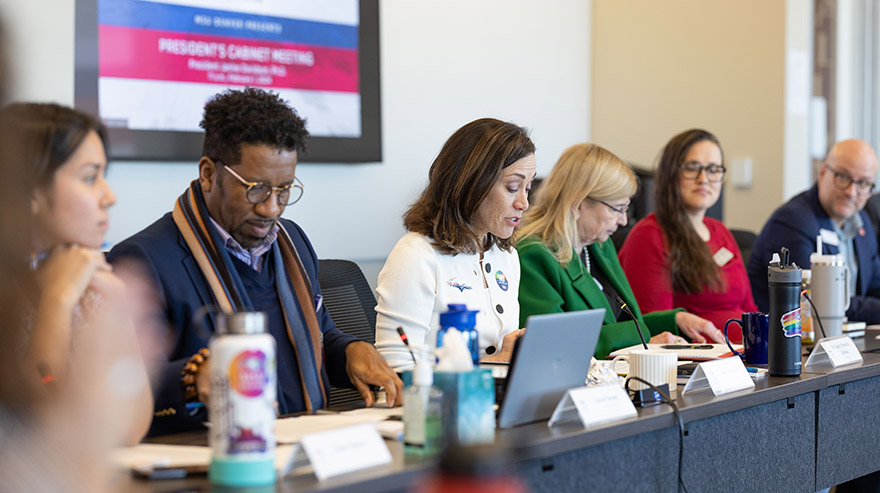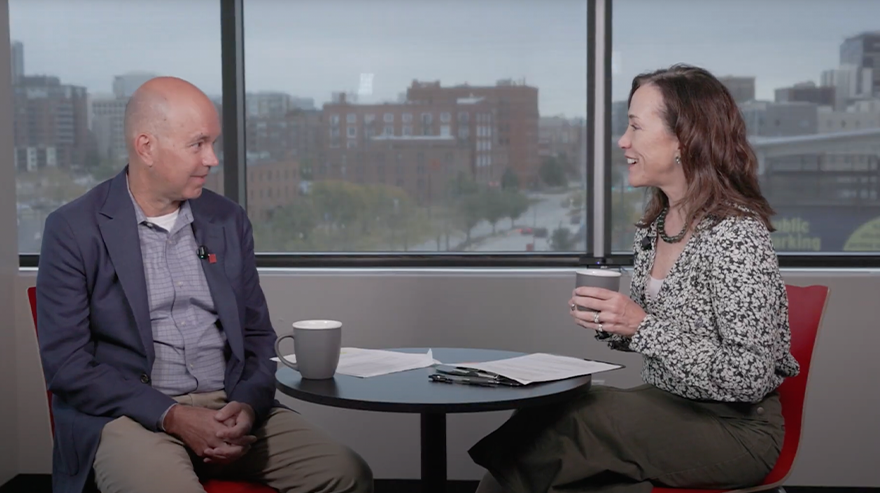With the state facing a potential $900 million shortfall next year, Metropolitan State University of Denver must find ways to operate more efficiently and reallocate resources toward proven programs that drive student success, President Janine Davidson, Ph.D., wrote in her annual budget charge, an outline of spending priorities for next fiscal year.
Davidson said University budget managers should focus on investing in people, projects and initiatives that strengthen MSU Denver’s impact, especially through student retention and completion and expanded educational opportunity. Accessibility and student success are not only at the heart of MSU Denver’s founding mission; the state funding formula rewards higher-education institutions with improved degree-completion rates, Davidson wrote.
“Student success is not optional — it is why we all get out of bed every day,” she said in an email message to University employees Wednesday.
As with last year’s budget charge, Davidson said student success is connected to employee success and that the University budget should prioritize investments in competitive compensation, professional development and technology and facilities “that enhance our ability to do great work and make our daily work lives better.”
The budget charge also emphasized that when planning their fiscal 2026 budgets, departments should increase operational efficiency and create “sustainable impact.”
“MSU Denver must build strategic reserves and allocate funds for the operation and maintenance of new capital assets and to be prepared for unexpected challenges and opportunities,” the letter states.
Entering the fifth budget cycle since the Covid-19 pandemic, Davidson reflected on the University’s recent successes, including a 7% increase in student retention and an annual economic impact of nearly $1 billion. These accomplishments highlight MSU Denver’s role as Colorado’s only modified-open-access university and a valuable public investment, Davidson wrote.
With the FY26 presidential budget priorities in hand, members of the University Planning and Budget Advisory Committee, known as UPBAC, will now begin the process of developing a budget recommendation that Davidson and other senior leaders will consider as they prepare next fiscal year’s spending blueprint. That budget proposal will go before the Board of Trustees for approval in June.
Budget owners will receive a budget circular from the Office of Budget in early November with detailed instructions for preparing proposals, which will be due Feb. 14.
UPBAC consists of representatives from every MSU Denver administrative and academic branch, and now is the time for employees at every level to discuss budget-related requests, proposals and concerns with their supervisors, who can pass along feedback and ideas to UPBAC through their branch representative.








